
SEO has changed a lot over the years thanks to the ever-changing nature of Google’s algorithms. Despite all the different updates made by the Google corporation, one practice has passed the test of time and remained to be a true and effective way to raise traffic to your page, and that is keyword research.
What is Keyword Research?
Keyword Research is usually the first step in a seo campaign. The reason being is that once you get the right keywords that you want to implement in your page, you can use these terms to help you guide your content and inform the viewer and Google of what your page is all about.
The process of keyword research is actually quite simple, find search-terms that your target audience is using the most and implement those terms into your site.
Why is Keyword Research Important?
Keyword research can help direct your content. In order to implement your keywords, you must insert them on your page (ex: Heading Tags) so it makes sense to figure out your keywords before writing your content. But why would you want to implement your keywords on your page? What benefits come from doing keyword research?
Traffic Growth
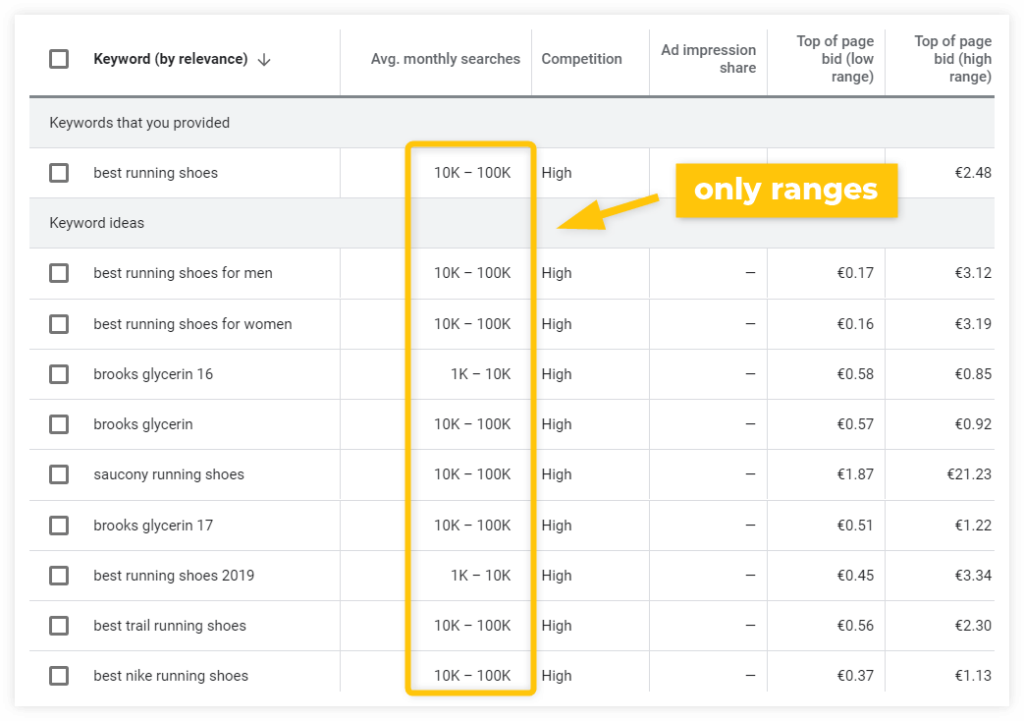
Each keyword attracts different amounts of traffic due to its popularity. Online consumers like to use simple terms to search for the products or services that they are looking for. You could have many words that have the same meaning but usually one of them would attract more people than the other simply because that’s the word most people are using to search for what they want. By inserting these popular terms, you can attract more people to your page.
Increased SERP’s Rankings
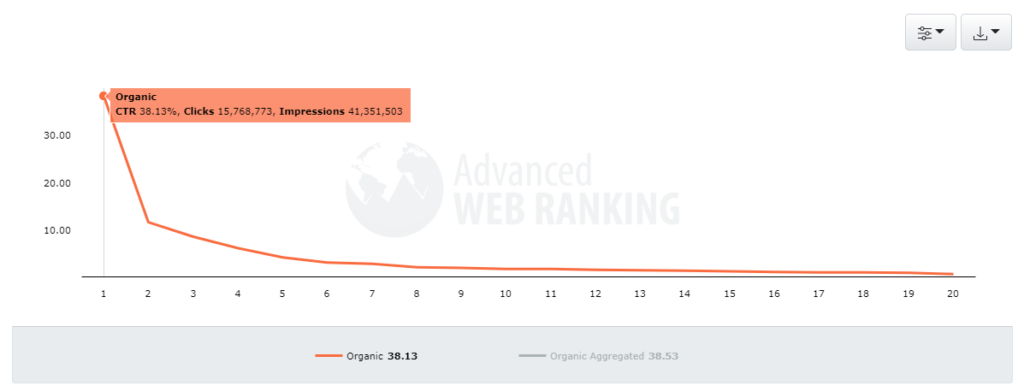
For those who don’t know, SERP stands for search engine results page. What does that mean? Basically, every time someone looks for something online on google, google tries to find the best and most relevant information there is for that person.
For that reason, google sets each web page in different rankings depending on how relevant and credible those pages are and naturally the higher you’re ranked, the more traffic you can attract. By inserting the right keywords and creating content that follows them not only increases your rankings but also ranks your page in the right places.
You wouldn’t want to search for dog shirts on google and get chewing toys instead. It doesn’t matter how high your page is ranked, if you’re not writing or displaying what your audience is looking for, all that traffic will not follow through because your page does not provide the answer to their searches and it will lower your rankings in the search pages so it’s important to also research the search’s intent, which brings me to the next point.
Insight With Your Audience
Performing keyword research can help you figure out what exactly your audience is looking for. Observing not just what topics your audience finds popular but also little improvements or complaints they have or wish they could see in that particular topic.
Creating content is not about what you want to tell the viewer, but instead what the viewer wants to find through your content, whether it be a product they seek or a solution to a problem. At the end of the day, in order to get the most out of keyword research, creating high-quality content is what is going to promote your page and it will also help out every person that views your page which in the end will create a better user experience and that is what really matters.
How to Perform Keyword Research
Before going out and looking for keywords you need to figure out the main topic that you will want to target. The topic that you would target is simply the type of content you would like to put out on your page. You would also want to know the intentions of your targeted audience like as said before. To give a better understanding of this process, let’s say you’re creating a blog about the best trucks in Texas. The topic in this example would of course be, the best trucks in Texas, but you can also see that you would be targeting an audience that is not only interested in trucks but is also looking for an answer to their question so this article will have to be more informative and as in-depth as possible.
After having the topic and intent you want to target, it is highly recommended that you create a keyword research template to keep track. A way to record all the different keywords you find useful and the amount of volume they could potentially create. I personally use Excel sheets in this manner.
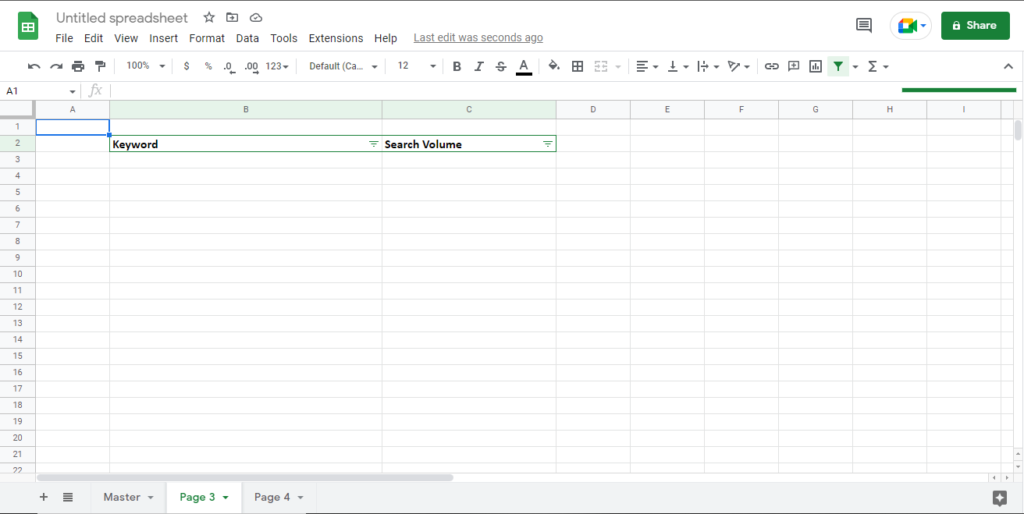
After creating a keyword template, start brainstorming a few words that you think most people would be using to search for your topic, and keep in mind the people’s intent. In the example that I gave before, you would probably use keywords like the best selling trucks in texas, what is the most reliable truck, most popular pick up truck, etc . After brainstorming a few keywords, you can go out and search for more that are related to your topic.
When it comes to practicing keyword research there are many free tools that you can utilize to find some such as:
- Moz
- SEMRUSH
- Ubersuggest
- Google Adwords/Google Keyword Planner
- And Google Keyword Suggestions
And you will mostly use all of these in conjunction with each other since they offer different types of words and data that you will need.
Google Suggestions
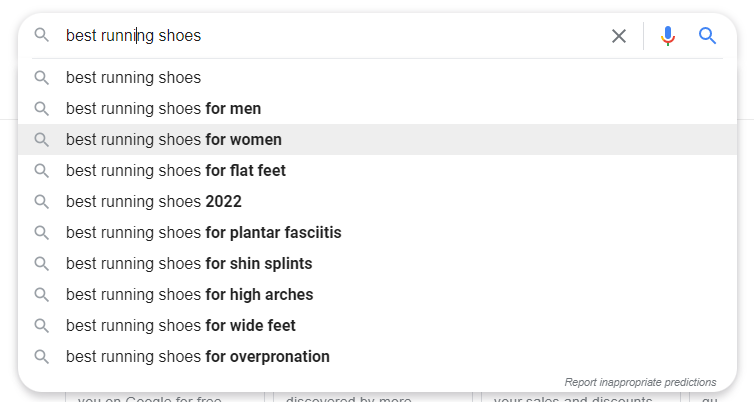
Usually, the first place to find keywords would be Google Suggestions since it’s a free and fast way to find good keywords. What are Google suggestions? Well every time you type some words in the search bar, Google tries to automatically fill in the rest. That is the Google suggestions.
You can usually find keywords there that most people like to use and might not have been thought of by brainstorming alone. These terms are very useful since google finds them relevant to what you’re searching for.
Also if you press enter and try to go all the way to the bottom of the page results, you can find the related searches where you can find more words associated with that topic. After selecting a few of those keywords go ahead and write them down on your keyword research template.
Google Adwords/Google Keyword Planner
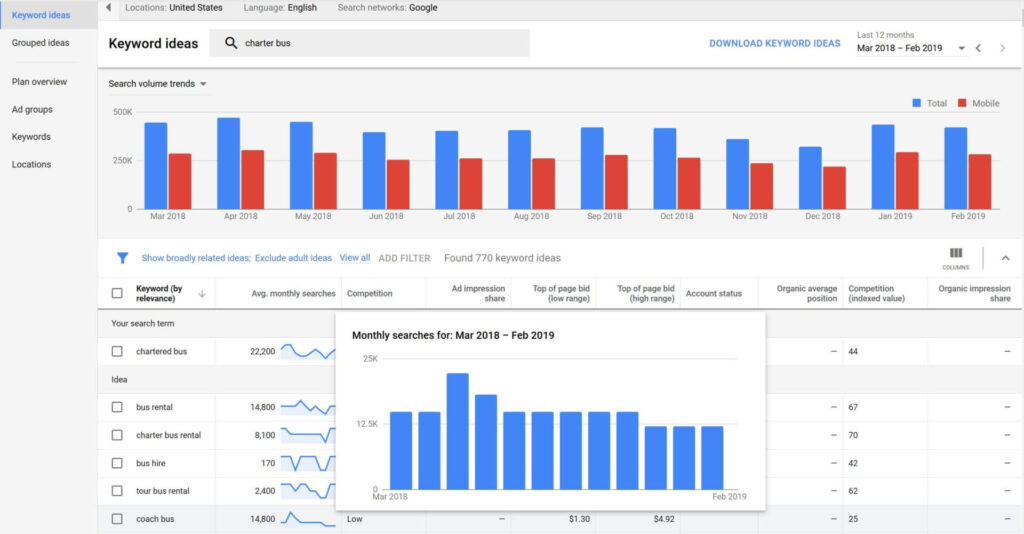
The reason why I have these two together is that they’re basically the same thing. To access the Google Keyword Planner, you must go through the process of setting up an ad with Google Ads. Don’t worry, you don’t actually have to pay to gain the opportunity to use Google keyword planner since it’s already a requirement for you to select keywords for your ad campaign. Once you have linked your business to Google ads and connected your Google Analytics account to it, Google will ask you to write the ad.
Google Keyword Planner will appear subsequently when you’ve written your ad. There, Google will suggest a few keywords that will serve very well for your website page. After selecting your desired terms you can continue the procedure to gain access to the google keyword planner, but to do so you would have to pay and for the sake of this article, I am trying to keep it free.
FREE SEO Tools
The two prior options are just tools that you can use to search up keywords but are not exactly intended to do so. The following options will be SEO tools that are not just built to help you with your keyword research, they will also give you the additional information that will be needed. Other statistics like the traffic volume, difficulty, and SERP analysis are usually what SEO tools offer without having to spend money and all of these different sets of data will be very important for your keyword template. Even though the information they display is very valuable, the data will be limited or the number of words you can insert will have a cap for the reason that you’re using their tools for free. I would suggest using them at the end because of the limited use.
Ubersuggest
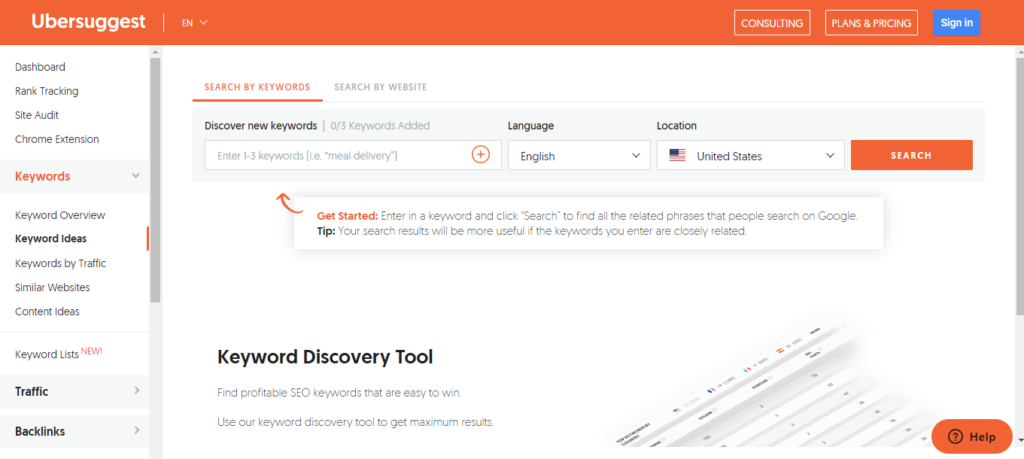
Ubersuggest is a great platform that you can use to do your keyword research. They not only give a large amount of keywords that you can find a use for, but it also gives you an overview of each keyword that you search. This includes the volume in which your terms are being searched, how difficult it will be to rank through SEO, how difficult it would be if you pay, and the cost-per-click ratio. It can also suggest keywords in the form of questions or prepositions or words that are comparable to have a more accurate search-intent term.
They also provide you with content ideas that will show you the blogs that are popular in those specific keywrods and all the specifics of why that blog is ranking high on those words including backlinks, social shares, and estimated volume. If you click on the backlinks it can show you all the different pages that are linking to that blog and if you click on keywords you can see all the other keywords that page is ranking for.
As you can see, Ubersuggest provides a lot of value that easily makes this a credible free SEO tool. The biggest problem is that, when it comes to using it for free, your actions with this platform are very limited. You can only search up to 3 keywords per day and it will not provide as much information as it would if you were paying. Despite that major drawback, I still see Ubersuggest as a very adequate and high-quality free SEO tool due to all the value that it can present to you.
SEMRUSH
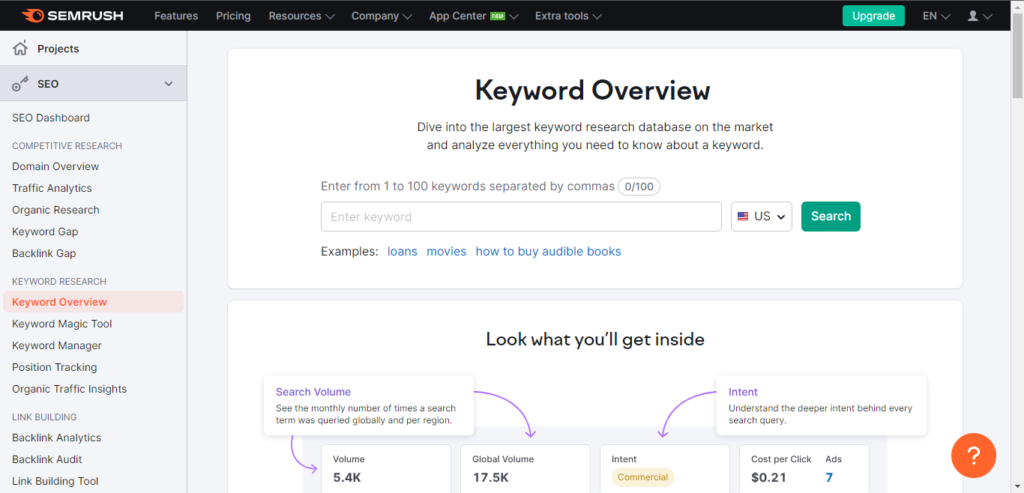
When it comes to looking for an outstanding free SEO tool that is also user-friendly and provides a multitude of keywords and value, you can look no further than SEMRUSH. They provide as much info as Ubersuggest except you can search as many terms as you want and they also display more keywords for the same price.
A unique feature that SEMRUSH has is that it can also show the data depending on the region or nation that you are in and you can switch from desktop to mobile searches. The statistics and data that SEMRUSH gives are a bit more generic compared to Ubersuggest but they overcome it by showing you even more keywords that can be applicable to your site. As it might be expected from an SEO tool though, using the free version has its limitations.
First, you can’t see any history of the keyword you’re searching the way Ubersuggest displays. Second, they provide very limited competitor analysis. They will show you some websites that are ranking for that keyword, but they won’t tell you any data about them like backlinks, how many keywords they’re ranking for, social shares, estimated visits; they don’t show you anything other than the top ten pages ranking for that specific term. To access the rest, you will need to use the more premium version or actually check them out one by one.
MOZ
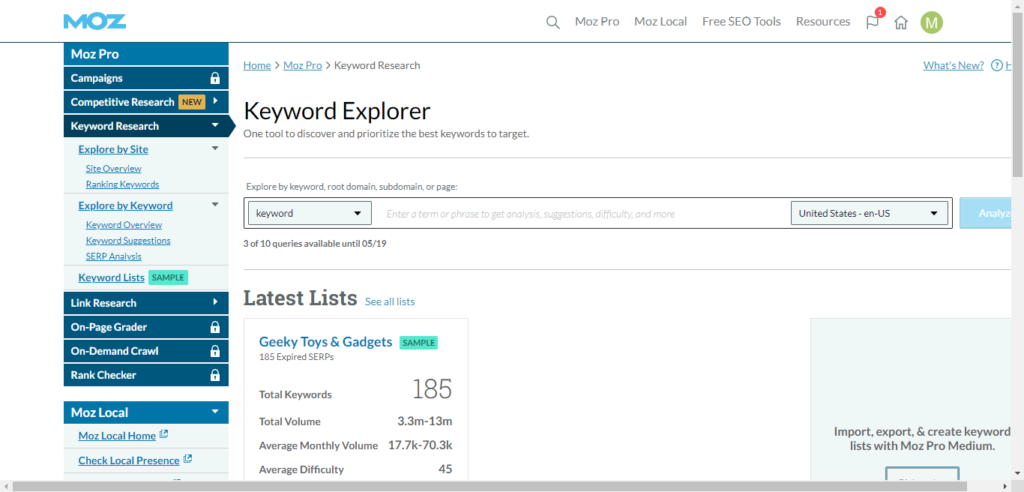
Moz I would say is the standard SEO tool for anything regarding SEO, that being said, it is also an excellent tool for keyword research. Just like the two previous options, Moz also displays a great deal of keywords to choose from along with the volume, difficulty to rank, and SERP analysis.
Moz provides just as much info as ubersuggest and semrush, and can provide even more services for free than ubersuggest or semrush would. The only reason why I don’t suggest this much to beginners is that it is not as user-friendly as the other options, not saying that it’s hard to use, but it’s not as easy on the eyes as the others. Other than that though, Moz is still a very good place to use for keyword research and other tasks regarding SEO.
You can do what both ubersuggest and semrush can do but with better accuracy. You do have to do a few more steps to do so, but just the fact of being able to see all the info every other SEO tool gives you and in addition analyze the competition and research new ideas to create content for free, I believe, is what sits Moz on top of the rest. So if you can learn how to use it, you would be set.
As you might guess, using this SEO tool for free does come with a few restraints. The biggest one for Moz is that you can only search up to 10 queries per month which is a big drawback, but if you use all three of these you should be able to find enough keywords to utilize for your page.
More Alternatives
These are only a few tools that you can use for your keyword research. There are many more out there if you really want to find more terms to use but I suggest these five since these are the best ones you can go for and are relatively popular amongst most SEO specialists. I suggest looking at this article if you want to find more options.
Validating Your Keywords
At this point, you should have written down all of your targeted keywords on your keyword research template because now we are going to analyze each one of them and check if they are good enough to use for your page. While most of the keywords that you find might sound like good additions to your collection, not all of them are worth the effort to try and rank with them.
Keyword Volume
The first step to figuring out if your keyword is valuable enough to rank is checking how much traffic it can gather. As you might have guessed, you can use the previous SEO tools that I mentioned to figure out the traffic of each keyword you have written down in your template. The volume of the keywords doesn’t have to be astronomically high, as long as it has around 100 it should be fine to use since you’re gonna be using multiple keywords to rank. I do suggest using either Moz or Semrush because the other options mentioned are not as accurate.
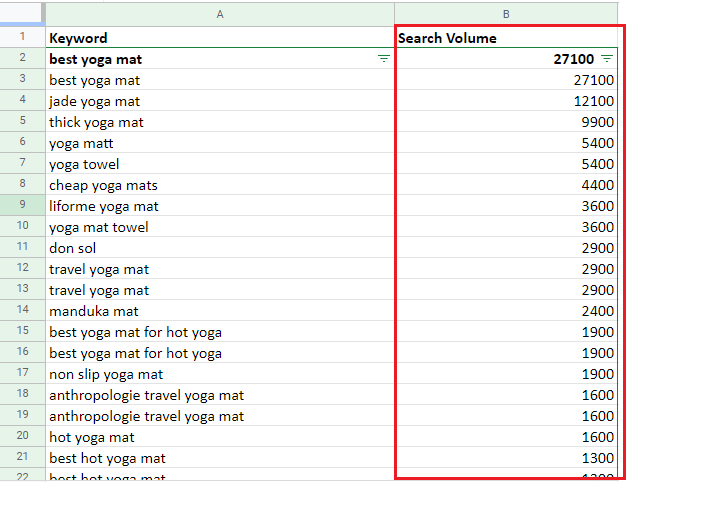
Difficulty
The next factor to check is how difficult it would be to rank that keyword. This is the most important step when doing keyword research. Sure, some of the SEO tools do help out with learning the difficulty of the search terms. But to really see how hard it would be to rank these words, you would need to do some competitor analysis yourself and the process of competitor analysis is a long and grueling procedure. I recommend downloading the mozbar chrome extension for this one to help you go through this process faster.
The competitor pages you would want to examine are sites that are ranked on the first page of google aka the top 10 pages. You can enter the keyword you would like to rank within either Google to see the pages that are ranked on the first page and you will want to see the page title of each one of them. Do they have the exact keywords in the page title? What content format is it using (ex: blog, product page, etc)? If you notice that most of the pages have that exact keyword in their page title, it might be difficult to rank that keyword since everybody else is using that term in their title.
Also, it’s recommended that you follow the same content format that everybody else is using because that is what most people seem to be looking for when searching for that keyword. Don’t try to invent the wheel by creating an innovative or different format (ex: product page when everybody else has done a blog). That format has already been proven to get results and rise to the top ten.
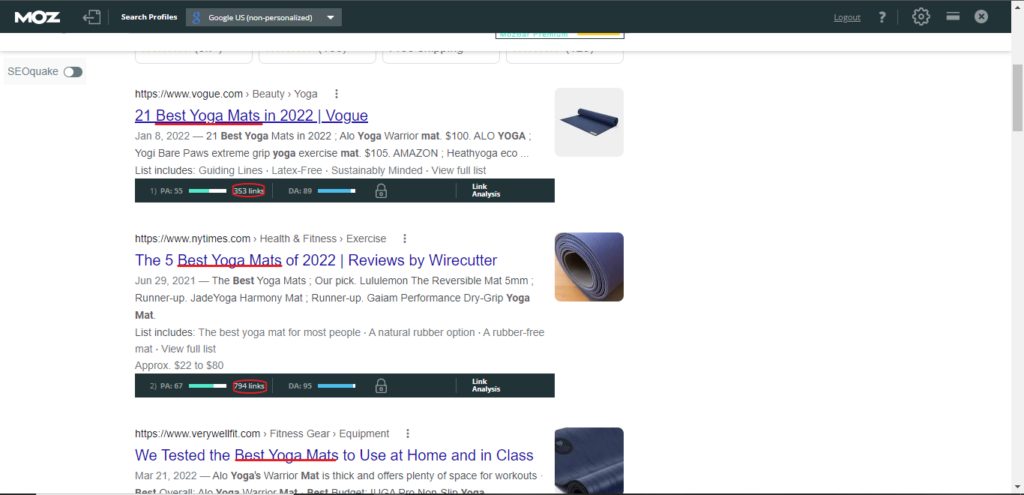
In this example, you can see that these three all have the word in there title and most of the pages seem to be blogs stating what they believe are the best yoga mats. If every site on page 1 is like this, it means that the best way to rank for this term is through blogs, but it could prove to be difficult since all of them have the word in their title.
You would also want to see how many referring domains they have. Referring domains are unique websites that link to your competitors. These are important because Google sees referring links as a way to ensure that the page is of high quality and very credible. If your competitors have a lot of referring domains then it means that you must be prepared to obtain even more in order to rank higher.
You have to go through this process on every one of your keywords to determine whether the term is worth the effort to rank or not. If that term is too difficult to rank, don’t try to use it as your primary focus. It can be very exhausting if you have many keywords that you are trying to rank but this is what it takes to optimize your page and get it to the top ranks.
What about Domain Authority?
For those who don’t know, Domain Authority is a metric that many SEO tools and specialists use to have a general idea of how high your page can rank. There are some people that think that domain authority is not necessary anymore, but I believe that it is still a very good way to determine the difficulty of a keyword. If your competitors do have a high domain authority, it will mean that it can be difficult to rank for that keyword, but not impossible. If you are able to generate enough backlinks to over take the competition, you will be able to rank higher but it will be substantially difficult compared to ranking with less-competitive keywords.
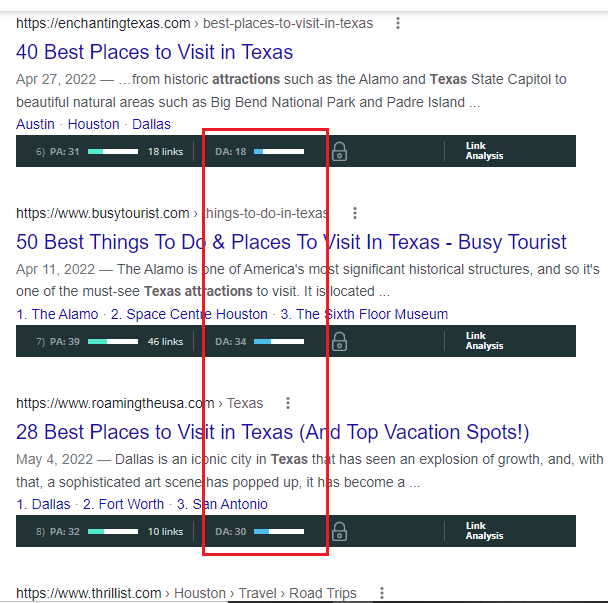
How Many Keywords Should You Use?
There isn’t really a maximum or minimum amount of keywords that you should target. But if you’re going to target multiple keywords, it’s better to use the terms that are related to your targeted words. Though, usually what happens is that your page might end up ranking for many other keywords that were not intended. What most SEO specialists recommend is to write great content focusing on a few relevant keywords and then wait for about 30-60 days to see what other keywords it may be ranking for. After finding out the keywords, find additional terms to then update your content with. It’s not always a good idea to rank for just one keyword because most terms will usually attract a very low amount of volume so combining your terms will help you get more results.
Where Should the Keywords be Implemented?
This question steers a bit more into on-page optimization, but when in comes to inserting the keywords the three most important places to implement them is the URL, SEO Title tag and H1 tag.

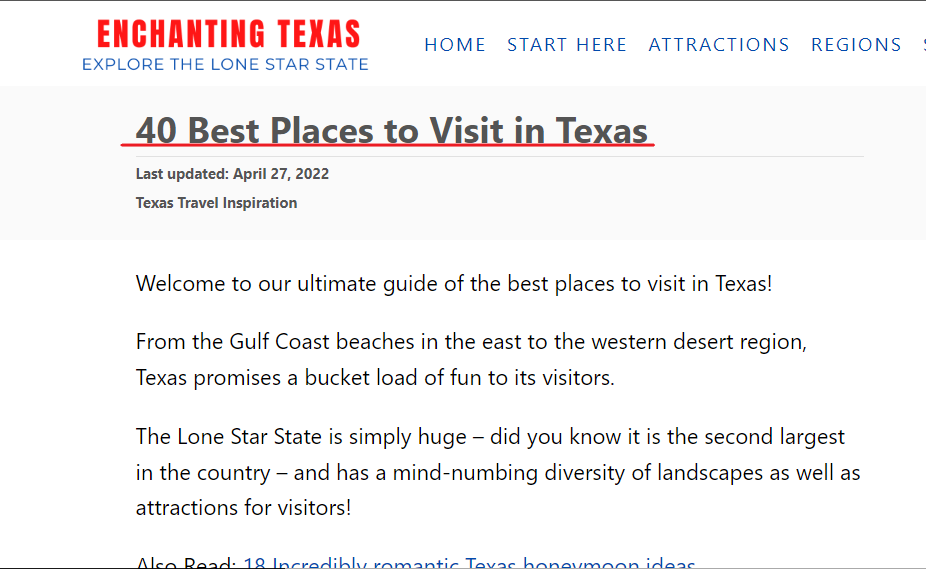
You can also insert them in other heading tags (H2, H3, H4….etc) and content.

Conclusion
To summarize it, Keyword research is a vital part of optimizing your website. It can provide more traffic, higher rankings for your site, and a better insight to your audience. By combining your brain and several free tools, you can find many terms that are relevant to your topic and can be applied to your page. After writing down all the relevant terms on your keyword template, you must validate your keywords to see which terms are worth ranking. Usually the harder keywords are dropped to put your time on words that can return your investment.
Save time and maximize site performance with:
- Instant help for Technical SEO complications
- Gain up to 25 powerful Backlinks per month
- Rank high for multiple keywords
- Search console management
All of that and much more. Check out our plans or talk to sales to find a plan that’s right for you.